Home>Home Maintenance>Why Is A Home Inspection Important
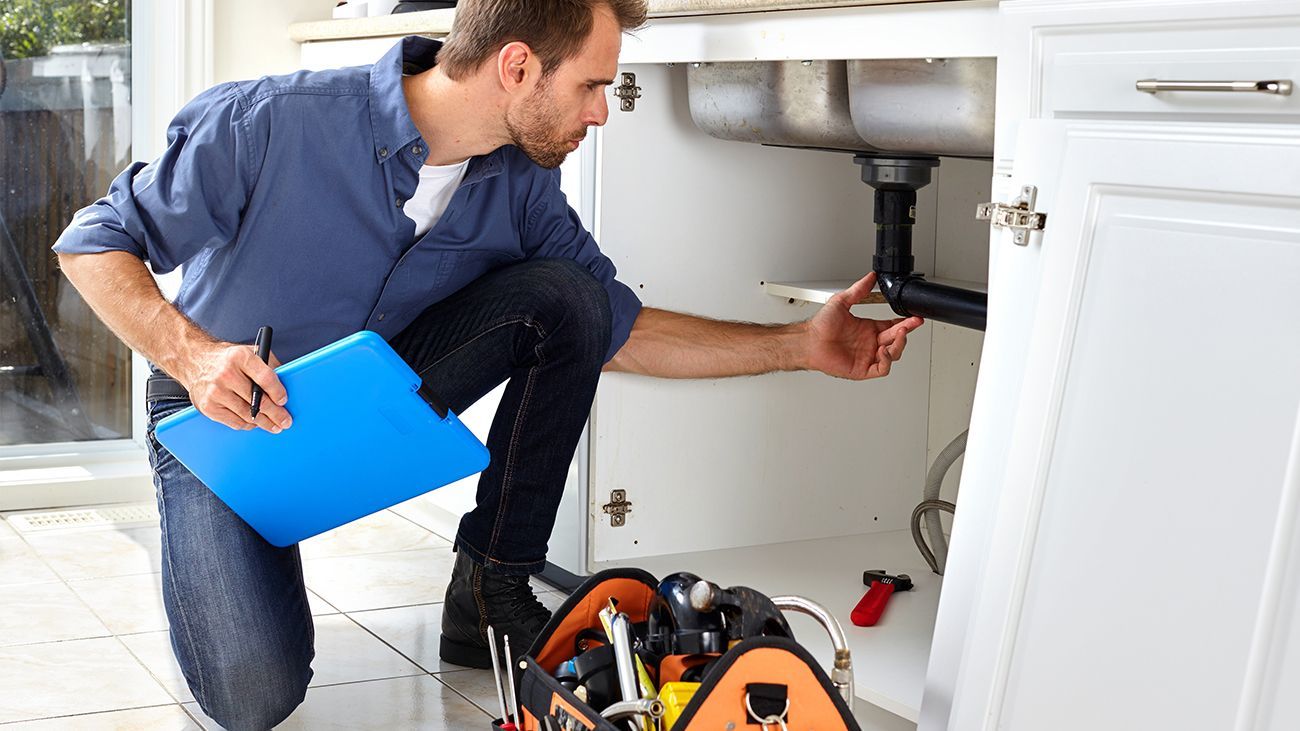

Home Maintenance
Why Is A Home Inspection Important
Modified: October 18, 2024
Ensure the safety and value of your property with a thorough home inspection. Discover why home maintenance is crucial in protecting your investment.
(Many of the links in this article redirect to a specific reviewed product. Your purchase of these products through affiliate links helps to generate commission for Storables.com, at no extra cost. Learn more)
Introduction
Buying a home is a significant investment that requires careful consideration and attention to detail. Whether you’re a first-time homebuyer or a seasoned homeowner looking to upgrade, it’s crucial to ensure that the property you’re interested in is in good condition and free from any potential issues. This is where a home inspection comes into play.
A home inspection is a comprehensive examination of a property by a professional inspector to evaluate its overall condition. It includes a thorough assessment of the structure, systems, and components of the home, such as the foundation, roof, electrical system, plumbing, and more. The inspection aims to identify any existing problems, potential hazards, and repairs or maintenance tasks that may be required.
Undertaking a home inspection is not just an optional step in the home buying process; it is a vital aspect that can provide you with peace of mind and potentially save you thousands of dollars in unexpected repairs or renovations down the line.
In this article, we will explore the importance of a home inspection and the numerous benefits it offers to homeowners. We will also cover what you can expect during a home inspection, how to prepare for one, and how to interpret the results of a home inspection report.
Key Takeaways:
- A home inspection is crucial for understanding a property’s condition, identifying potential issues, and ensuring safety. It empowers buyers to make informed decisions and protect their investment.
- By prioritizing repairs, consulting professionals, and negotiating with sellers based on inspection results, buyers can navigate the home buying process with confidence and protect their long-term investment.
Read more: Why Is Air Conditioning Important
What is a Home Inspection?
A home inspection is a visual examination of a property conducted by a qualified professional, typically a certified home inspector. It involves a detailed assessment of the home’s structure, systems, and components to determine their condition, functionality, and potential issues.
During a home inspection, the inspector will thoroughly examine various aspects of the property, including the foundation, roof, walls, electrical system, plumbing, HVAC (heating, ventilation, and air conditioning) system, insulation, and more. They will inspect both the interior and exterior of the home, checking for any visible defects, signs of damage, or safety concerns.
It’s important to note that a home inspection is different from an appraisal or a code inspection. An appraisal determines the value of the property, while a code inspection ensures that the home meets local building codes. A home inspection, on the other hand, focuses on identifying existing issues and potential problems that may require attention or repairs.
The duration of a home inspection can vary depending on the size and condition of the property. On average, it can take anywhere from two to four hours to complete. It’s recommended for potential buyers to be present during the inspection to ask questions, gain a better understanding of the home’s condition, and familiarize themselves with its systems and features.
After the inspection is complete, the home inspector will provide a detailed report outlining their findings. This report will typically include descriptions of any issues discovered, as well as recommendations for repairs or further evaluations by specialists, if necessary.
It’s worth noting that a home inspection is not limited to real estate transactions. Homeowners who are planning to sell their property can also benefit from getting a pre-listing inspection. This allows them to identify and address any issues before putting the property on the market, increasing its appeal and potentially avoiding negotiation setbacks.
Importance of a Home Inspection
A home inspection is a crucial step in the home buying process, as it provides valuable information about the condition of the property. Here are some key reasons why a home inspection is important:
- Identifying Potential Issues: A home inspection can reveal hidden problems that may not be apparent during a regular walkthrough. Issues such as structural defects, faulty wiring, plumbing leaks, mold, or pest infestations can all be uncovered through a thorough inspection. Identifying these issues upfront allows buyers to make informed decisions and potentially negotiate for repairs or a lower purchase price.
- Ensuring Safety: The safety of a home’s occupants is of paramount importance. A home inspection can uncover safety hazards such as faulty wiring, inadequate ventilation, or fire hazards. By addressing these issues, homeowners can ensure a safe living environment for themselves and their families.
- Avoiding Costly Repairs: Discovering hidden problems before purchasing a home can save buyers from unexpected and expensive repairs down the line. Knowing about the condition of the roof, HVAC system, plumbing, and other major components can help buyers budget and plan accordingly. This knowledge also allows buyers to have realistic expectations about the maintenance and upkeep costs of the property.
- Verifying Seller Disclosures: Sellers are typically required to disclose known issues with the property. However, some sellers may not be aware of certain problems or may intentionally withhold information. A home inspection acts as an independent verification of the property’s condition, ensuring that buyers have a complete picture before making a purchase.
- Peace of Mind: Buying a home is a significant investment, both financially and emotionally. A home inspection provides buyers with peace of mind, knowing that they have made an informed decision based on a thorough evaluation of the property. It allows them to move forward with confidence, fully aware of any issues or repairs that may be needed.
In summary, a home inspection is a critical step in the home buying process. It helps buyers make informed decisions, identify potential issues, ensure safety, avoid costly repairs, verify seller disclosures, and gain peace of mind. Investing in a professional home inspection is an investment in the long-term well-being and satisfaction of homeownership.
Benefits of a Home Inspection
Getting a home inspection offers numerous benefits to both homebuyers and sellers. Let’s explore some of the key advantages:
- Knowledge is Power: A home inspection provides buyers with a wealth of knowledge about the property they are considering. It gives them a detailed understanding of the condition of the home, its systems, and any potential issues. Armed with this knowledge, buyers can make informed decisions and negotiate effectively.
- Preventing Surprises: Unexpected repairs or maintenance tasks can quickly drain your finances. A home inspection can help you uncover hidden issues before you finalize the purchase. By knowing about potential problems in advance, you can factor in the necessary costs and plan for future repairs and improvements.
- Negotiation Tool: If the home inspection uncovers significant issues, buyers can use that information as leverage during negotiations. Depending on the severity of the problems, buyers may request repairs, credits, or a reduced purchase price. This can save them money and ensure they are not shouldering the burden of unforeseen repairs.
- Peace of Mind: A thorough home inspection offers peace of mind to homebuyers. It provides reassurance that the property they are purchasing is in good condition and that they have taken the necessary steps to protect their investment. Knowing that a professional has examined the home and given it their stamp of approval adds a sense of security to the buying process.
- Disclosure: For sellers, a pre-listing home inspection can be beneficial. By conducting an inspection before listing the property, sellers can address any issues upfront and make necessary repairs. This can boost the attractiveness of the property, simplify the selling process, and potentially lead to a quicker sale.
- Opportunity for Maintenance Planning: A home inspection report not only identifies current issues but also highlights areas that might require maintenance or attention in the future. Understanding these potential future costs allows homeowners to plan and budget accordingly. It also provides an opportunity to prioritize repairs and maintenance tasks based on their urgency.
By investing in a home inspection, both buyers and sellers can benefit greatly. Buyers gain a deeper understanding of the property and potential issues, while sellers can address any issues upfront and increase their chances of a smooth and successful sale. Ultimately, a home inspection is a valuable tool that helps protect the interests of all parties involved in a real estate transaction.
Potential Issues Revealed by a Home Inspection
A home inspection is designed to uncover any potential issues or defects in a property. While the specific findings can vary depending on the age, location, and overall condition of the home, here are some of the common issues that may be revealed during a home inspection:
- Structural Problems: A home inspection can unveil structural issues such as cracks in the foundation, sagging floors, or bowing walls. These issues can affect the stability and integrity of the entire structure and may require costly repairs.
- Roof Damage: The condition of the roof is a crucial factor in a home’s overall health. A home inspector will check for missing or damaged shingles, signs of leaks, and the overall integrity of the roof. Issues with the roof can lead to water damage, mold growth, or compromised insulation.
- Electrical System Deficiencies: Faulty electrical wiring, outdated panels, or improper installations can pose serious safety hazards. A home inspection will identify any electrical code violations, potential fire risks, or the need for electrical upgrades.
- Plumbing Problems: A thorough inspection will assess the plumbing system for leaks, water pressure issues, and signs of water damage. It will also evaluate the condition of pipes, fixtures, and drains to ensure they are functioning properly.
- HVAC System Malfunctions: The heating, ventilation, and air conditioning (HVAC) system plays a crucial role in maintaining comfort and indoor air quality. A home inspector will examine the HVAC system, including the furnace, air conditioner, ductwork, and thermostat, to identify any performance issues or impending failures.
- Mold and Moisture: Moisture intrusion can lead to the growth of mold, which can have severe health implications. A home inspection will look for signs of mold, moisture stains, or water damage in areas such as basements, bathrooms, and crawl spaces.
- Pest Infestations: An inspector will check for signs of pest infestations, such as termites, ants, rodents, or wood-boring insects. These pests can cause extensive damage to the structure and require immediate attention.
- Insulation and Energy Efficiency: Insufficient or deteriorating insulation can lead to energy loss and higher utility bills. A home inspection will evaluate the insulation in the walls, attic, and crawl spaces to determine if any improvements or upgrades are needed to enhance energy efficiency.
- Safety Hazards: A home inspection will identify potential safety hazards, such as faulty wiring, inadequate ventilation, or the absence of smoke detectors and carbon monoxide alarms. These hazards can jeopardize the well-being of occupants and need to be addressed promptly.
It’s important to remember that a home inspection is not meant to uncover every single issue but rather to provide a comprehensive overview of the property’s condition. Once the inspection report is obtained, buyers can consult with professionals or specialists to assess any identified issues further and determine the necessary steps for repair or mitigation.
Read more: Why Insulation Is Important
How to Prepare for a Home Inspection
A home inspection is a crucial step in the home buying process. To ensure a smooth and successful inspection, it’s important to adequately prepare beforehand. Here are some tips to help you prepare for a home inspection:
- Clear Access to Areas: Make sure that the inspector has easy access to all areas of the property, including the attic, basement, crawl spaces, and utility closets. Clear away any clutter or obstructions that may hinder the inspector’s ability to thoroughly assess these areas.
- Provide Utility Connections: Ensure that all utilities, including water, gas, and electricity, are turned on and accessible. The home inspector will need to test various systems and appliances to assess their functionality. If certain utilities have been disconnected, it may hinder the inspection process.
- Maintain Cleanliness: Keep the home clean and well-maintained before the inspection. This includes tidying up both the interior and exterior of the property. A clean home allows for better visibility of potential issues and demonstrates that the property has been cared for.
- Complete Repairs and Maintenance: Address any minor repairs or maintenance tasks before the inspection. Fix leaky faucets, replace burned-out light bulbs, and repair any damaged or loose components. Taking care of these issues beforehand presents a positive impression and reduces the risk of minor issues being noted in the inspection report.
- Provide Documentation: Gather any documentation related to recent renovations, repairs, or improvements made to the property. This includes permits, invoices, warranties, and manuals for installed appliances or systems. Having this documentation on hand allows the inspector to review and verify the work that has been done.
- Make Yourself Available: Plan to be present during the inspection or have your real estate agent attend on your behalf. This gives you an opportunity to ask questions and gain a better understanding of any issues that may arise. Being available also allows the inspector to communicate their findings directly, which can be helpful in making informed decisions.
- Compile a List of Concerns: Prior to the inspection, make a list of any specific concerns or questions you have about the property. This can include items you’ve noticed during your own walkthrough or areas you’d like the inspector to pay extra attention to. Providing this information can help ensure that your concerns are addressed during the inspection.
- Follow COVID-19 Safety Protocols: Due to the ongoing pandemic, it’s important to prioritize the safety of all parties involved. Follow any recommended COVID-19 safety protocols, such as wearing masks, maintaining social distancing, and sanitizing common areas. Consult with your real estate agent or the inspector for specific guidelines to follow during the inspection.
By following these tips and adequately preparing for a home inspection, you can help ensure a smooth process and maximize the benefits of the inspection.
When scheduling a home inspection, make sure to hire a qualified and experienced inspector. Look for someone who is licensed and certified, and has a good reputation in the industry. This will ensure that you receive a thorough and accurate assessment of the property.
Choosing a Professional Home Inspector
When it comes to selecting a home inspector, it’s important to choose a qualified professional who can provide a thorough and unbiased assessment of the property. Here are some key considerations to keep in mind when choosing a professional home inspector:
- Experience and Qualifications: Look for a home inspector who has extensive experience in the field and possesses the necessary qualifications and certifications. Check if they are a member of a reputable professional organization, such as the American Society of Home Inspectors (ASHI) or the National Association of Home Inspectors (NAHI).
- Knowledge and Expertise: A good home inspector should have a deep understanding of residential construction, building codes, and common issues found in homes. They should be well-versed in identifying potential problems and offering sound recommendations based on their expertise.
- Thoroughness and Attention to Detail: The inspector’s ability to conduct a comprehensive and meticulous examination of the property is crucial. Pay attention to their attention to detail during the inspection process, including their thoroughness in assessing both the interior and exterior of the home and their ability to identify potential issues.
- Professionalism and Integrity: Choose an inspector who conducts themselves in a professional and ethical manner. They should be unbiased and objective, providing an honest assessment of the property without being influenced by any external factors.
- Sample Inspection Reports: Ask to see sample inspection reports from the inspector. A well-structured and detailed report with clear explanations and supporting photographs is essential. The report should provide a comprehensive overview of the property’s condition and include recommendations for repairs or further evaluations, if necessary.
- Insurance and Liability: Inquire about the inspector’s insurance coverage and liability. Ensure that they carry errors and omissions insurance (E&O) to protect both parties in case any issues arise after the inspection.
- Reputation and References: Seek out recommendations and reviews from trusted sources, such as friends, family, or your real estate agent. Additionally, ask the inspector for references from previous clients to get a sense of their reputation and the quality of their work.
- Cost and Availability: While cost shouldn’t be the sole determining factor, it’s important to understand the pricing structure and ensure that it aligns with the level of service provided. Additionally, inquire about the inspector’s availability to schedule the inspection within your desired timeframe.
Remember, choosing the right home inspector is a crucial step in ensuring a thorough evaluation of the property. Take the time to research and ask questions to make an informed decision. A professional and experienced inspector will provide you with the confidence and peace of mind you need when making such a significant investment.
What to Expect During a Home Inspection
A home inspection is a comprehensive examination of a property, conducted by a certified home inspector, to assess its condition and identify any potential issues. Here’s what you can expect during a home inspection:
- Exterior Examination: The inspector will start by examining the exterior of the home, including the roof, siding, windows, doors, and the overall condition of the property. They will look for signs of damage, such as cracks, water stains, or peeling paint.
- Structural Assessment: The inspector will assess the structural components of the property, including the foundation, walls, and floors. They will inspect for any signs of settlement, cracks, or sagging that may indicate structural issues.
- Roof Inspection: The inspector will carefully examine the roof, looking for damaged or missing shingles, signs of leaks, and the overall condition of the roof structure. They may also check the integrity of the chimney, gutters, and downspouts.
- Interior Evaluation: The interior inspection will cover various areas of the home, including rooms, hallways, staircases, and ceilings. The inspector will assess the condition of the walls, flooring, ceilings, and inspect for any signs of water damage, mold, or structural issues.
- Electrical Assessment: The electrical system will be evaluated, including the main panel, wiring, outlets, switches, and lighting fixtures. The inspector will check for proper grounding, potential code violations, and the presence of any safety hazards.
- Plumbing Evaluation: The inspector will assess the plumbing system, including pipes, fixtures, faucets, and drains. They will check for leaks, water pressure issues, and evaluate the functionality of toilets, sinks, bathtubs, and showers.
- HVAC System Inspection: The heating, ventilation, and air conditioning (HVAC) system, including the furnace, air conditioner, ductwork, and thermostat, will be examined. The inspector will check for proper operation, cleanliness, and potential issues or maintenance requirements.
- Appliance Testing: If there are any built-in appliances included in the sale, the inspector may test them to ensure proper operation. This can include checking the functionality of the oven, stove, dishwasher, refrigerator, and other appliances.
- Attic, Basement, and Crawl Spaces: The inspector will inspect these areas for insulation, ventilation, and signs of moisture or water intrusion. They will assess the overall condition and look for any issues that may need further attention.
- Documentation and Communication: Throughout the inspection, the home inspector may document their findings, take notes, and photos to include in the final inspection report. They may also communicate their observations and provide explanations or recommendations to the buyer.
It’s important to note that a home inspection is a visual examination, and the inspector will not perform destructive testing or move personal belongings. The inspection’s focus is to identify existing problems, potential hazards, and provide an overall assessment of the property’s condition.
After the inspection is complete, you will receive a detailed inspection report outlining the inspector’s findings, including any identified issues and recommended repairs or further evaluations. This report will help you make informed decisions and proceed with the necessary steps based on the inspection results.
Questions to Ask During a Home Inspection
A home inspection is an opportunity for you to gain valuable insights about the property you are considering purchasing. Asking the right questions can help you better understand the home’s condition and any potential issues. Here are some questions you may want to ask during a home inspection:
- What is the overall condition of the home? This question allows the inspector to provide a general assessment of the property and highlight any significant issues they have identified.
- Are there any immediate concerns or safety hazards? This question helps you prioritize any urgent repairs or safety issues that need to be addressed right away.
- What is the age and condition of the major systems? Inquire about the age and overall condition of the HVAC system, electrical system, plumbing, and roof. Understanding the lifespan and potential maintenance needs of these systems is crucial for budgeting and planning future repairs.
- Are there any signs of water damage? Water damage can indicate underlying issues such as leaks or inadequate drainage. Ask the inspector to point out any areas of concern or signs of water intrusion they have observed.
- Do any repairs or upgrades require immediate attention? This question helps you identify any immediate expenses or repairs that may impact your decision to proceed with the purchase.
- What routine maintenance tasks should I be aware of? Understanding the home’s maintenance requirements can help you plan and budget for ongoing care. Ask the inspector about any routine maintenance tasks specific to the property or its systems.
- Are there any potential code violations? Inquire about any potential code violations that may need to be addressed. This is particularly important if you plan to make any renovations or additions to the property in the future.
- Is the insulation sufficient? Proper insulation is essential for energy efficiency and comfort. Ask the inspector about the insulation in the home, including the attic, walls, and floors, and whether it meets current standards.
- Are there any signs of pests or infestations? Pests can cause significant damage to the home. Ask the inspector if they have noticed any signs of pests, such as termites, rodents, or wood-boring insects.
- Can you explain the findings mentioned in the report? If there are any specific items in the inspection report that you do not fully understand, ask the inspector for further clarification or explanation.
Remember, the home inspector is there to provide you with valuable information and answer your questions. Don’t hesitate to ask anything that will help you make an informed decision about the property. The more you know about the home’s condition, the better equipped you will be to proceed with confidence.
Understanding the Home Inspection Report
After a home inspection is completed, you will receive a detailed inspection report that summarizes the inspector’s findings and observations. Understanding the contents of the report is crucial for making informed decisions about the property. Here’s an overview of how to understand a home inspection report:
- General Information: The report will typically begin with general information, including the property address, date of the inspection, and the inspector’s contact information. Take note of these details for future reference.
- Summary of Findings: The report will provide a summary section that highlights the significant findings from the inspection. This section typically includes any immediate concerns or safety hazards that need to be addressed.
- System and Component Assessments: The report will break down the inspection findings by various systems and components of the property, such as the roof, electrical system, plumbing, HVAC, and more. Each section will discuss the inspector’s observations, any issues identified, and recommendations for repairs or further evaluations.
- Severity of Issues: The report may indicate the severity or significance of the issues identified during the inspection. This can help prioritize repairs or determine the urgency of addressing certain problems.
- Photographic Evidence: Many home inspection reports include photographs that accompany the written findings. These images provide visual documentation of the issues discovered, helping to clarify the inspector’s observations.
- Recommendations and Further Evaluations: The report may make recommendations for repairs, maintenance tasks, or further evaluations by specialists. It’s important to carefully review these recommendations and understand their potential impact on the property and your decision-making process.
- Limitations: The report will likely include a section that outlines the limitations of the inspection. This may include mentioning any inaccessible areas, limitations in testing, or areas that could not be fully evaluated. Understanding these limitations will provide context for the inspection findings.
- Glossary of Terms: Some inspection reports may include a glossary of terms to help you understand technical jargon or unfamiliar terminology used in the report. Take advantage of this resource to enhance your understanding of the findings.
- Ask for Clarification: If there is anything in the report that you do not fully understand, do not hesitate to reach out to the inspector for clarification. They will be able to provide additional information and address any questions or concerns you may have.
Remember, the purpose of the report is to provide you with a comprehensive overview of the property’s condition. It is not uncommon for a report to contain both minor issues and more significant concerns. Use the information in the report to inform your decision-making process, and if necessary, consult with professionals or specialists to further evaluate and address any identified issues.
Taking Action Based on the Home Inspection Results
After receiving the home inspection report and reviewing the findings, it’s time to determine the appropriate actions to take. Here are some steps to consider based on the inspection results:
- Prioritize Repairs: Identify the issues mentioned in the inspection report and prioritize them based on their severity and urgency. Focus on addressing any immediate concerns or safety hazards first.
- Consult Professionals: For significant issues or repairs beyond your expertise, consider consulting with appropriate professionals. This may include contractors, electricians, plumbers, or structural engineers who can provide expert opinions and cost estimates for repairs.
- Request Remedies: If the inspection has revealed major issues or concerns, you may negotiate with the seller to request repairs, credits, or a reduction in the purchase price to account for the cost of repairs. Your real estate agent can guide you through the negotiation process.
- Consider Future Costs: Take into account the long-term costs associated with the property. If there are deferred maintenance needs or potential future repairs, factor these costs into your budget to ensure you can comfortably afford the property.
- Renegotiate the Contract: If the inspection reveals significant issues that were not previously disclosed or known, you may have the option to renegotiate the terms of the contract. This can include modifying the purchase price or requesting additional concessions from the seller.
- Obtain Second Opinions: If you have concerns about specific findings in the inspection report, you may seek second opinions from other professionals. This can help you gain a broader understanding of the issues and potential solutions.
- Perform Due Diligence: If the inspection report raises concerns about the property’s condition or possible underlying issues, you may choose to engage in further due diligence. This can include additional inspections or evaluations by specialized inspectors, such as for mold, radon, or pest infestations.
- Reevaluate Your Offer: Based on the inspection results and any negotiations with the seller, reassess your willingness and financial ability to proceed with the purchase. Remember to consider the overall condition of the property, potential repair costs, and your comfort level with the potential as-is condition of the home.
- Plan for Regular Maintenance: Develop a maintenance plan for the property to keep it in good condition. Regular maintenance can help prevent future issues and extend the lifespan of various components in the home.
It’s essential to communicate openly with your real estate agent throughout the process. They can guide you in navigating the steps to take based on the inspection results and help ensure that your rights and interests as a buyer are protected.
Remember, a home inspection report provides valuable information, but it is ultimately up to you to make the decisions that align with your needs, budget, and risk tolerance. Taking appropriate action based on the inspection results will help you make an informed decision about the property and protect your investment in the long run.
Conclusion
Getting a home inspection is an essential step in the home buying process. It provides you with a comprehensive assessment of the property’s condition, identifies any potential issues or safety hazards, and gives you peace of mind knowing that you have made an informed decision about your investment.
A professional home inspection helps you understand the true state of the property beyond what is visible during a regular walkthrough. It can reveal hidden problems, such as structural issues, electrical or plumbing deficiencies, roof damage, or signs of pest infestations.
By taking the time to prepare for a home inspection and asking the right questions, you can gain a deeper understanding of the property and its maintenance needs. The inspection report serves as a valuable document, detailing the inspector’s findings, including any issues or recommended repairs.
Armed with the information from the inspection report, you can prioritize necessary repairs and maintenance, negotiate with the seller if needed, and plan for future expenses. It’s essential to consult with professionals when required, to ensure that the necessary repairs are done properly and to estimate the associated costs.
Remember, a home inspection report is not a guarantee against future issues, as it is a snapshot of the property’s condition at the time of inspection. Regular maintenance and monitoring are still crucial to keep your home in optimal condition.
Choosing a reputable and experienced home inspector is key to obtaining an accurate and thorough inspection report. Take the time to research and select a qualified professional who will provide you with honest and reliable information.
In conclusion, a home inspection is an investment that offers valuable insights into the property you intend to buy. It empowers you to make informed decisions, protect your interests, and ensure the safety and well-being of you and your family. By taking action based on the inspection results, you can navigate the home buying process with confidence and set the stage for a smooth and successful homeownership experience.
Frequently Asked Questions about Why Is A Home Inspection Important
Was this page helpful?
At Storables.com, we guarantee accurate and reliable information. Our content, validated by Expert Board Contributors, is crafted following stringent Editorial Policies. We're committed to providing you with well-researched, expert-backed insights for all your informational needs.

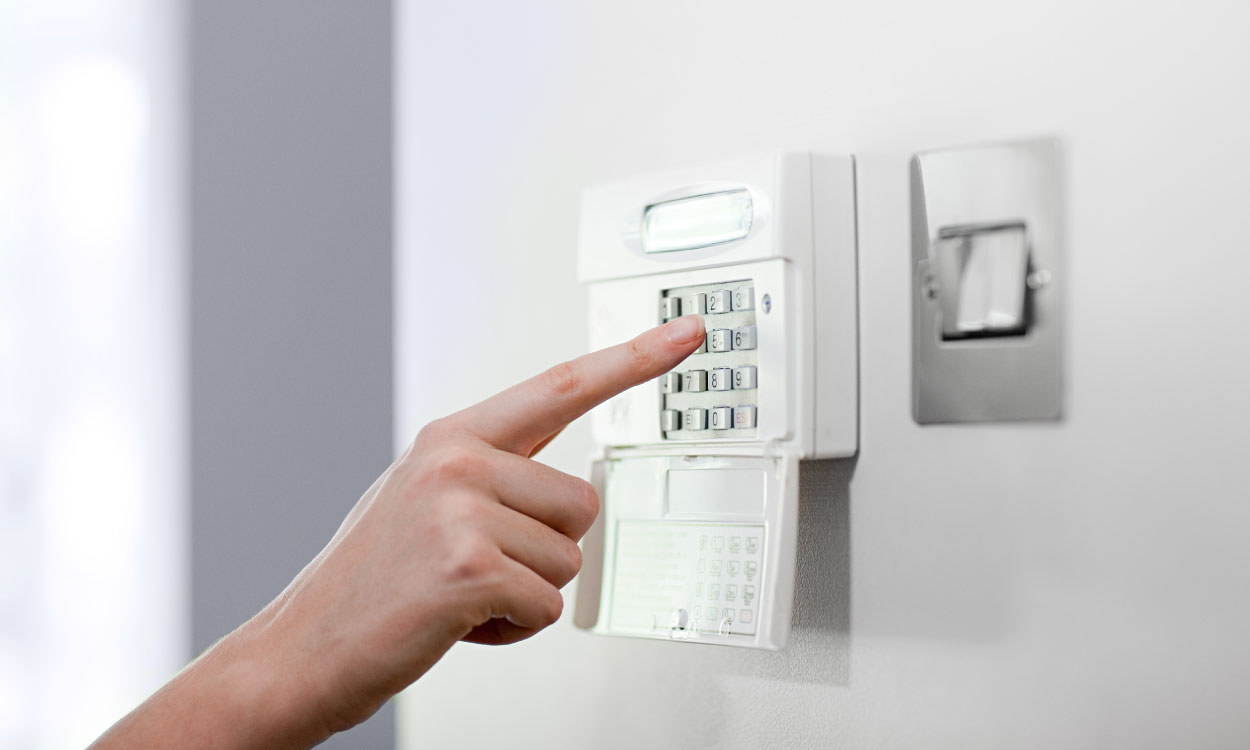

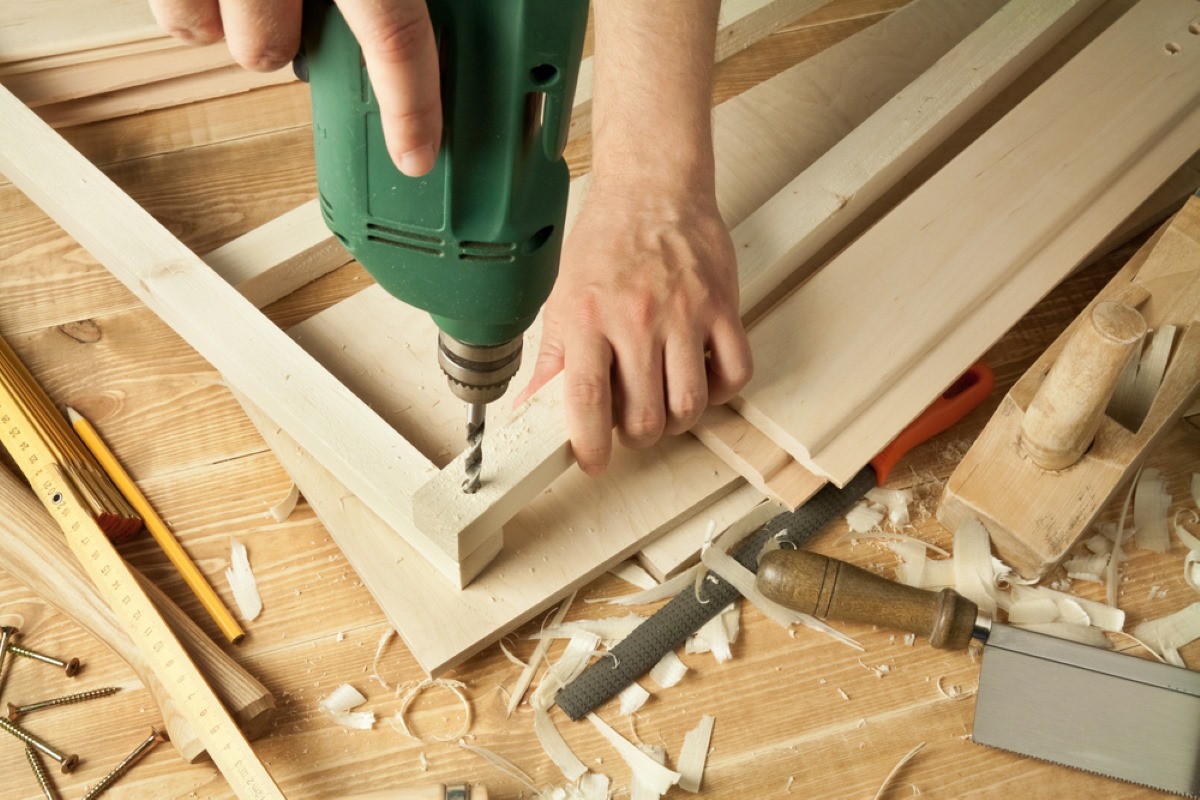
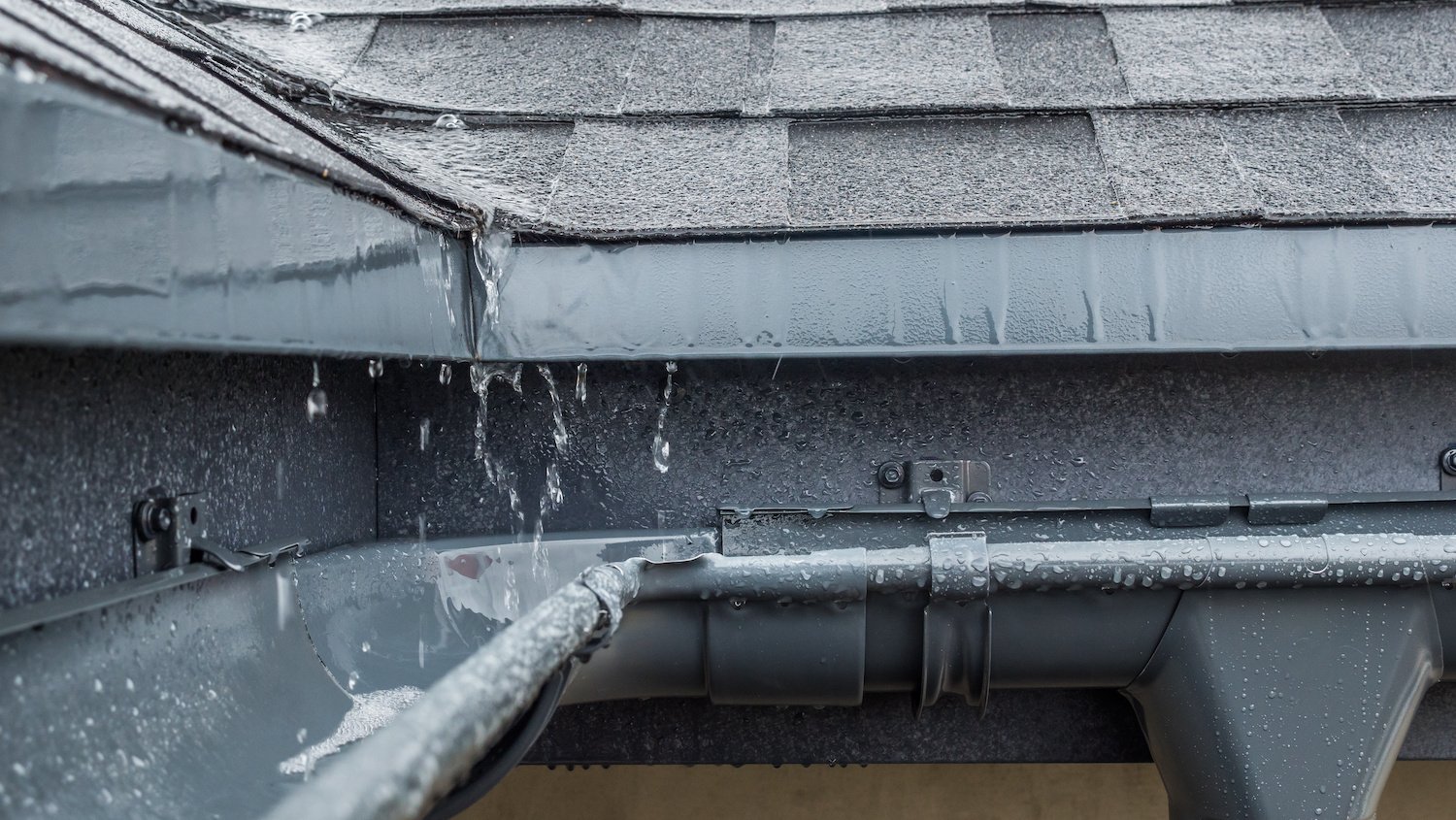

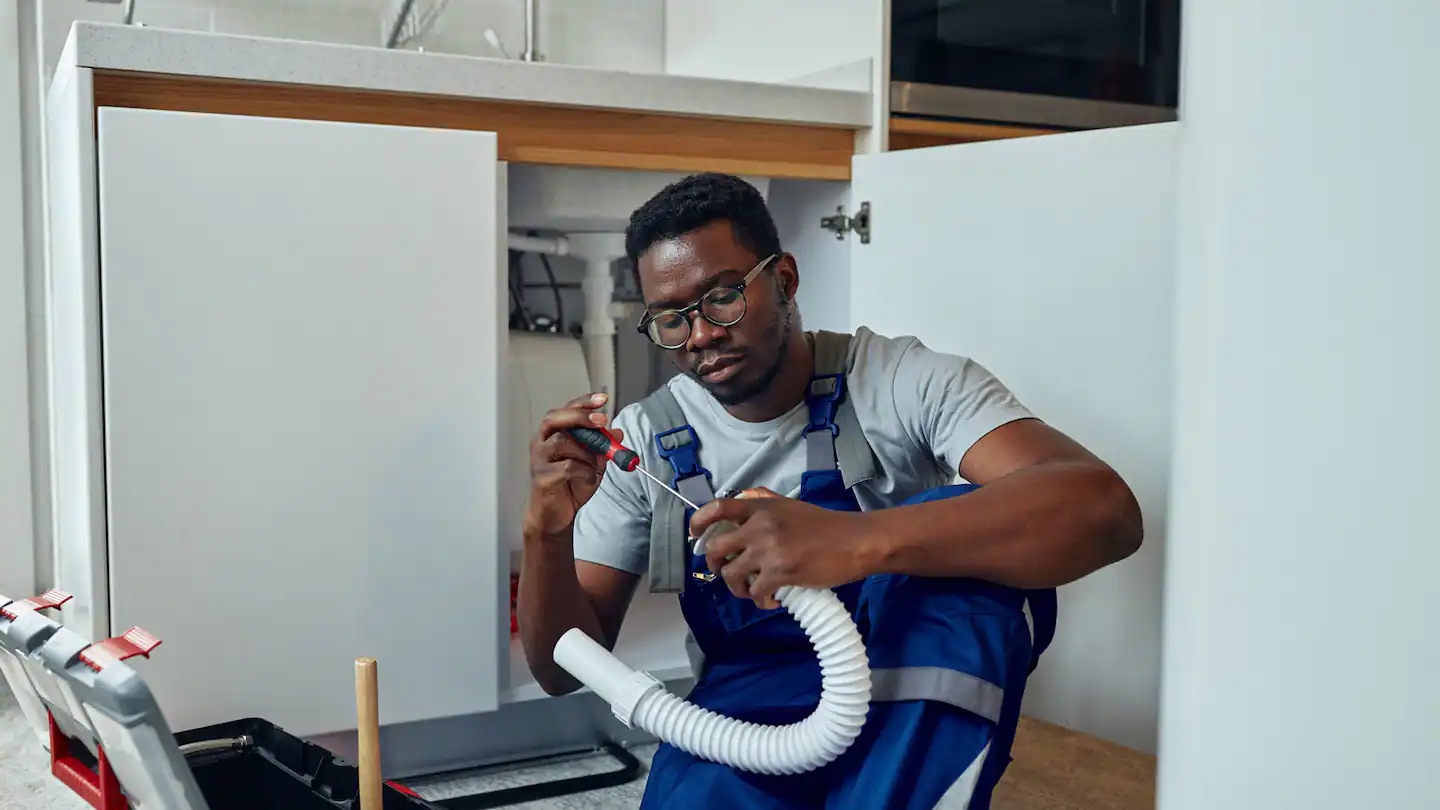





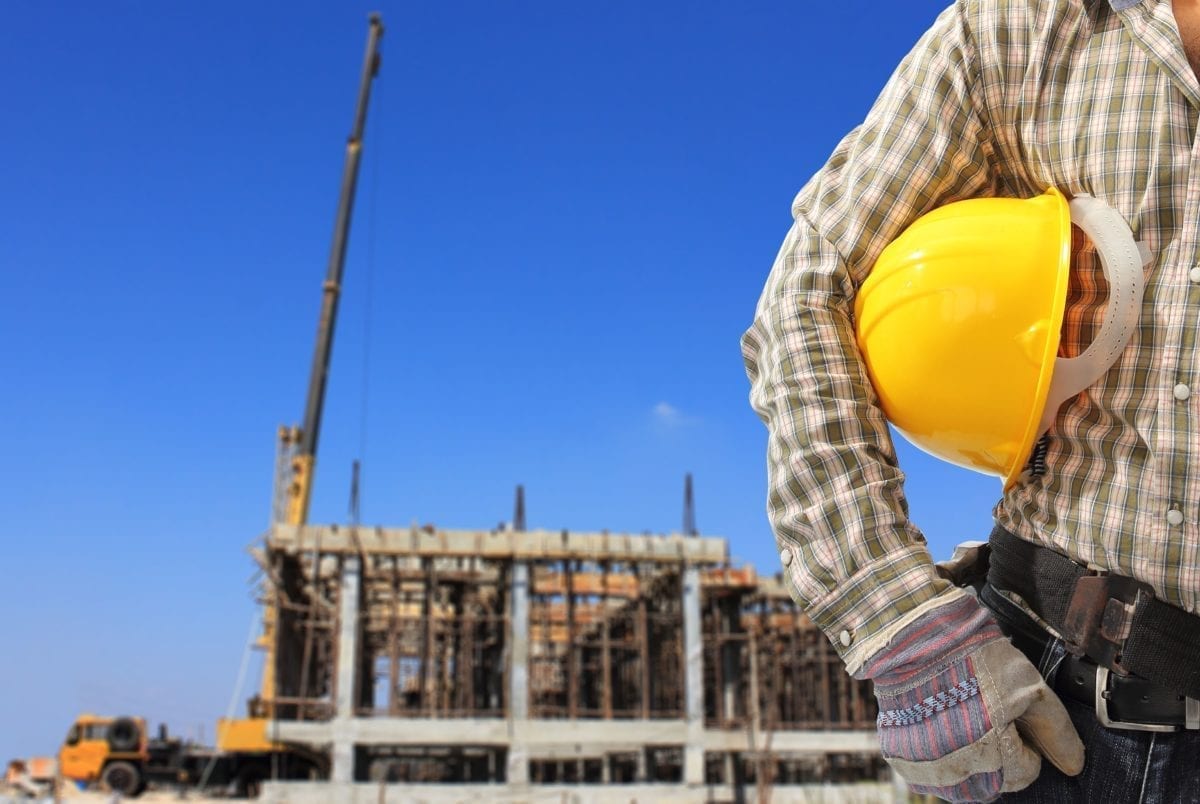

0 thoughts on “Why Is A Home Inspection Important”